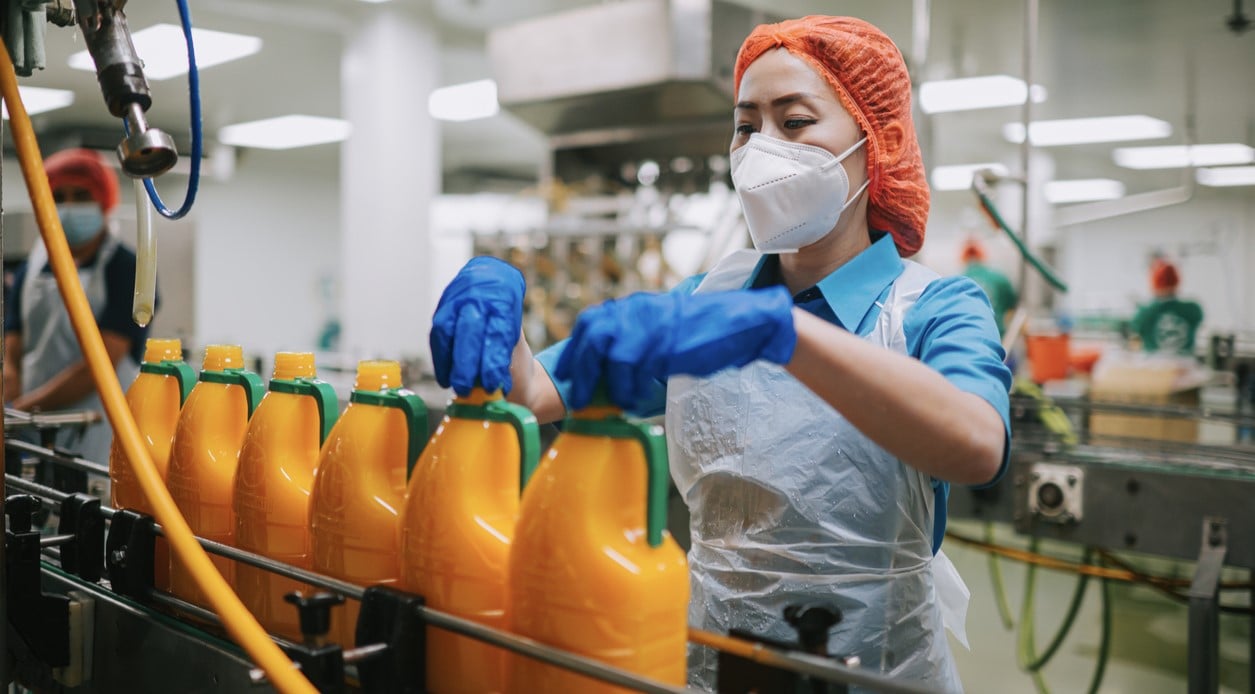What to Know About Food Safety in South Korea
As of 2024, the South Korean food and beverage industry has reached an estimated value of $134 billion, growing at a compound annual growth rate (CAGR) of 5.1%. As consumers across the globe increasingly demand exports like K-pop music and K-beauty cosmetics, it was only a matter of time until the Korean wave expanded to food. A 2024 report by the South Korean Ministry of Agriculture, Food, and Rural Affairs (MAFRA) revealed that food and beverage product exports to the U.S. has increased to $3.52 million annually, at a 14.2% year over year growth rate.
This massive growth in the nation’s food and beverage sector coincides with a major evolution of South Korea's food safety culture. Here’s a look at how the industry landscape is changing and how these international food safety standards affect exporters.
What’s driving changes to South Korea’s food safety culture?
Recent events have created a cascade of changes to food safety attitudes among consumers as well as regulators in South Korea:
- COVID-19 increased attention to food hygiene. A 2022 study published in Public Health in Practice found that concerns about viral transmission at the height of the pandemic fueled major behavior and perception changes around food safety beyond regulations and public health guidelines. According to the survey, consumers of every gender and age bracket reported taking extra care to clean and disinfect kitchen items, wash their hands before eating, and avoid communal dishes.
- Heightened concerns about food safety incidents. In recent years, foodborne illness outbreaks and food adulteration scandals have driven demand for more in-depth oversight from regulators, manufacturers, and distributors alike. As a result, government officials have taken a more hands-on approach to high-profile product inspections. Recently, the Ministry of Food and Drug Safety completed a campaign to prevent adulterated kimchi products from entering the market at the height of production season.
- Demand for compliance with international standards. As South Korean food manufacturers have ramped up export activity, they’ve begun preemptively adopting global food safety standards to streamline compliance. With recent updates to regulations, many South Korea food safety standards are now more in alignment with international expectations.
An Evolution in South Korea Food Safety Regulations
New consumer attitudes and marketplace pressures have driven major updates to food safety regulations in South Korea, including:
- Updated import safeguards. In 2021, the Korean Ministry of Food and Drug Safety (KMFDS) tightened regulations around imported agricultural products to protect citizens from foodborne illnesses. New regulations included the addition of requirements like:
- On-site inspections of foreign food facilities to improve safety control before importation
- Sanitation assessments of livestock products
- Border inspections (including documentation, field inspections, and random sampling) to enhance safety control in customers’ clearance
- Collection and inspection of imported food products to enhance safety controls in distribution
- New specifications for food contact materials and articles. Also in 2021, regulators published a new set of food safety standards that prohibit the use of harmful or toxic chemicals in food containers, utensils, and other items that come into direct contact with food. These new standards bring South Korea food safety regulations more in alignment with rules in Europe and the United States.
- More collaboration with international experts. As the South Korean market has become more involved in global trade, leaders from the food and beverage industry increasingly participate in international knowledge-sharing about food safety dangers, practices, and technology, even hosting events like the Asia-Pacific Symposium on Food Safety. Collaborating with experts around the globe helps both strengthen compliance and uplift standards to create a safer global food supply chain.
A New Era of International Food Safety Standards
Changes to South Korea’s food safety culture have had a tangible impact on public health, but there's more change needed for longterm and consistent food safety improvements. In 2021, the KMFDS reported the lowest ever number of food poisoning incidents, with only 53 patients per million citizens — but then, food poisoning cases surged in the winter of 2023.
As food safety culture evolves, South Korean manufacturers and distributors have an opportunity to play an even bigger role in the global market. But getting up to speed on international food safety standards, creating policies, and training employees are challenging endeavors that may require extra support. Third-party consultants could be the key to making the most of this opportunity in the market. AIB International offers a wide variety of consulting services, certifications, and trainings to help customers overcome the challenges of international trade.


